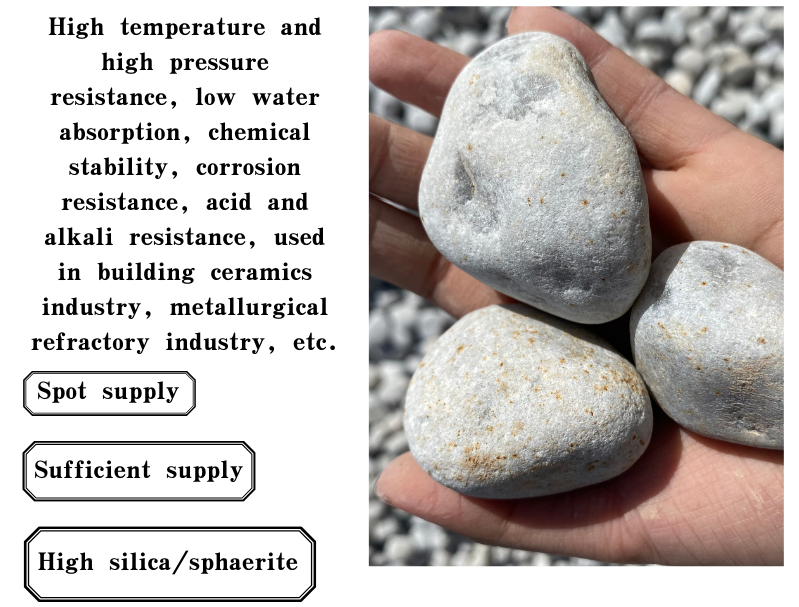
Exploring the Biodegradable Properties of Bentonite for Sustainable Applications
The Environmental Promise of Bentonite-Based Biodegradable Materials
In recent years, the pursuit of biodegradable materials has intensified, prompted by an urgent need to combat the global plastic pollution crisis. Among the promising candidates in this sphere is bentonite, a natural clay formed primarily from the alteration of volcanic ash. Its unique physical and chemical properties make it a valuable additive in the development of biodegradable materials, offering innovative solutions toward a more sustainable future.
Bentonite is composed mainly of smectite minerals, predominantly montmorillonite, known for their swelling and water-absorption properties. These characteristics allow bentonite to enhance the physical properties of biodegradable polymers, improving their mechanical strength, thermal stability, and barrier properties. As a result, products made from such composites can fulfill the functional requirements of traditional plastics while minimizing their environmental footprint.
The Environmental Promise of Bentonite-Based Biodegradable Materials
One of the critical advantages offered by bentonite is its biocompatibility and non-toxicity. Given that many plastics currently in use are derived from fossil fuels and may release harmful chemicals upon degradation, utilizing bentonite-based formulations can help alleviate such environmental and health concerns. Moreover, bentonite has been used historically in the agricultural sector as a natural soil amendment, which ensures that its introduction into the environment through biodegradable products will not pose further risks to ecosystems.
bentonite biodegradable

The process of biodegradation is catalyzed by microorganisms, which break down organic materials into simpler compounds. Bentonite can facilitate this process by improving the permeability of biodegradable substrates. When incorporated into biopolymer matrices, bentonite can promote the diffusion of water and air, thus enriching the microbial degradation pathway. This can yield significant reductions in the time required for these materials to break down compared to standard biodegradable plastics without additives.
In addition to functional advantages, the environmental implications of bentonite-based biodegradable materials cannot be overstated. Current estimates suggest that around 300 million tons of plastic are produced globally each year, a significant portion of which ends up in landfills and oceans, posing severe hazards to wildlife and natural habitats. By utilizing biodegradable alternatives that incorporate bentonite, businesses and consumers can significantly reduce their reliance on conventional plastics, thereby minimizing the accumulation of plastic waste.
Research into the long-term effects and applications of bentonite in biodegradable materials is ongoing. Scientists are experimenting with various ratios of bentonite to other biodegradable polymers to fine-tune their properties for specific applications. As the industry progresses, innovations such as bentonite-infused fibers for textiles or composites for construction materials may also emerge, demonstrating the versatility of this natural clay beyond traditional applications.
Moreover, consumer awareness and preference for eco-friendly products are rising, nudging businesses toward adopting sustainable practices. The incorporation of bentonite into biodegradable products not only meets regulatory demands for sustainability but also resonates with the values of environmentally conscious consumers, positioning brands favorably in a competitive market.
In conclusion, bentonite presents a sustainable pathway towards developing biodegradable materials that hold great promise in reducing plastic pollution. Its natural properties enhance the functionality and environmental acceptability of bioplastics, making them a viable alternative to traditional materials. The journey to a greener future requires innovative solutions, and bentonite’s role in the creation of biodegradable composites may very well be a cornerstone of effective change. As research continues to uncover further potentials, the proliferation of bentonite-based biodegradable products could help usher in an era of more sustainable consumption patterns, benefitting both the environment and society as a whole.
Share
-
Premium Glass Sand Solutions | High Purity SupplyNewsAug.03,2025
-
Premium Talcum Powder Enhanced with GPT-4 Turbo | Soft & Long-LastingNewsAug.02,2025
-
Fly Ash Solutions Enhanced by GPT-4 Turbo | Sustainable InnovationNewsAug.01,2025
-
Natural Premium Bentonite Cat Litter - Superior ClumpingNewsJul.31,2025
-
Premium Resin Coated Sand - High Heat Resistance CastingNewsJul.31,2025
-
High Quality Silicon Carbide Grit for Abrasive ApplicationsNewsJul.30,2025






